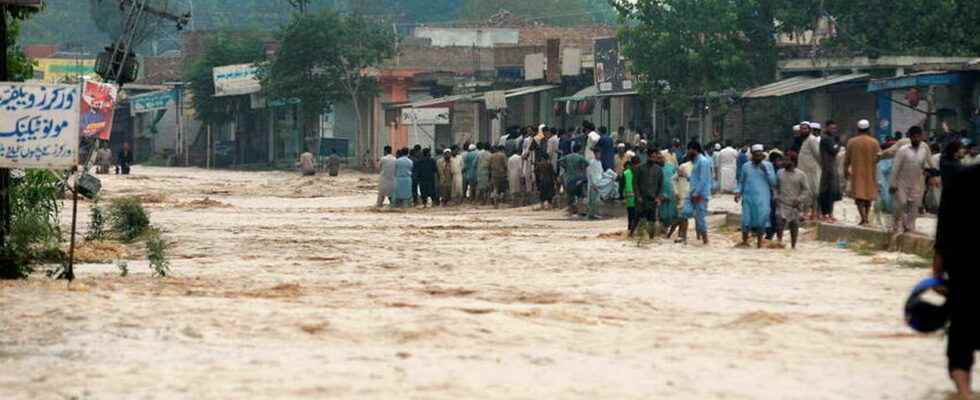LFloods caused by monsoon rains that began in June have passed the 1,000 death mark in Pakistan, according to the latest toll released by the National Disaster Management Authority (NDMA) on Sunday. In the past 24 hours, 119 people have died, bringing the toll to 1,060, but authorities were still trying to reach remote villages in mountainous areas in the north of the country, which could push the toll even higher .
More than 33 million people, or one in seven Pakistanis, were also affected by the floods and nearly a million homes were destroyed or badly damaged, according to the government.
These floods are “unprecedented for 30 years”, Prime Minister Shehbaz Sharif said on Monday. The floods are “like an ocean, there is water everywhere,” added the head of government, who was touring hard-hit northern regions to direct relief operations.
Two to four times more precipitation than average
The NDMA said more than 80,000 hectares of farmland had been ravaged and more than 3,400 kilometers of roads and 149 bridges washed away. The monsoon, which usually lasts from June to September, is essential for the irrigation of plantations and to replenish the water resources of the Indian subcontinent. But it also brings its share of drama and destruction each year.
READ ALSOIndia and Pakistan suffocate under heat records
Pakistani officials attribute the devastating weather to climate change, saying Pakistan is suffering the consequences of irresponsible environmental practices elsewhere in the world. The country received twice as much rainfall as usual, according to the weather service. In the most affected southern provinces (Baluchistan and Sindh), rains were more than four times the average for the past 30 years. The small town of Padidan recorded a record with more than four feet of rain falling since June.
Near Sukkur in Sindh province, where a massive colonial-era dam on the Indus River is vital to preventing the disaster from getting worse, a farmer lamented seeing his rice fields lost.
